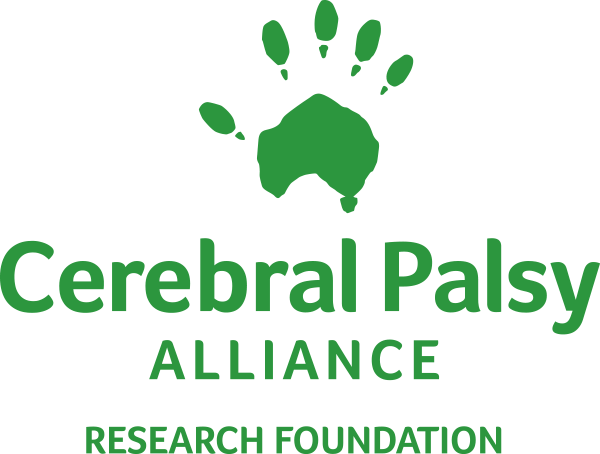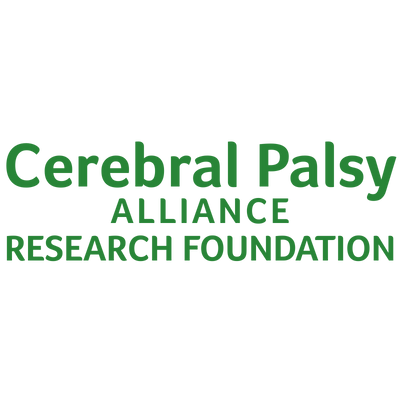Summary
Current Projects
- CP Check-UpTM
- Early Detection: General Movements Assessment Training Program
- Early Detection: sensitivity and specificity of GMA to detect cerebral palsy
Completed projects
- Dysphagia and associated comorbidities in young children with cerebral palsy: a cross-sectional study
- Dysphagia assessment of children with cerebral palsy: a cross-sectional survey of speech pathologists
Current Projects
CP Check-UpTM
Cerebral Palsy Alliance Investigator: Petra Karlsson
Co-Investigators: Gunnar Hagglund (Lund University Hospital, Sweden), Eva Nordmark (Lund University and Lund University Hospital, Sweden), Marianne Arner (Lund University Hospital), Phillipe Wagner (Lund University Hospital), Lena Westbom (Lund University Hospital and Lund University, Sweden)
CP Check-Up™ is based on an active surveillance program developed in Sweden called CPUP. Prospective active surveillance programs delivered early and collaboratively provide a window of opportunity for better outcomes for individuals with cerebral palsy. This active surveillance is used to help understand a person’s current status in order to plan and provide appropriate and timely interventions now and in the future. CP Check-Up™ utilises a variety of specialised assessments to collect information across many aspects of a person’s life including physical status, functional abilities, cognitive ability, emotional health and well-being. The information from these specialised assessments is collated in an electronic database and integrated with the CP Register. In 2015, Cerebral Palsy Alliance is looking to expand the CP Check-Up™ program to include adults to enhance their quality of life.
Early Detection: General Movements Assessment training program
Cerebral Palsy Alliance Investigator: Cathy Morgan
Prechtl’s Qualitative Assessment of General Movements (GMs) is the gold standard tool for the early detection of cerebral palsy. Training is offered only by the licenced tutors from the General Movements Trust in Europe. All trainees need to complete the basic training, and the advanced training is required for anyone wishing to use the GMs for research.
Cerebral Palsy Alliance is committed to the early identification of CP and, to this end, has supported the training of a number of Australian doctors and allied health practitioners in the GMs assessment. All NSW Neonatal Intensive Care Units (NICUs) now have staff trained in GMs, and are using GMs in their unit and follow-up clinics. A Sydney-based reliability network exists and meets twice per year to share cases and receive research updates.
A four day General Movements Assessment training program was held in February 2015. A total of 75 clinicians attended for basic or advanced training. In 2016, the training program is to be held in Adelaide.
Early Detection: sensitivity and specificity of GMA to detect cerebral palsy
Cerebral Palsy Alliance Investigators: Cathy Morgan, Iona Novak, Nadia Badawi (Children’s Hospital at Westmead)
Co-Investigators: Traci-Ann Goyen (Westmead Hospital), Caroline Hardman (Royal Prince Alfred Hospital), Cathryn Crowle (Children’s Hospital at Westmead), Michelle Jackman (John Hunter Children’s Hospital)
Consistent use of the GMs has been recently adopted in some centres in Australia. Since 2009, when the first training was held in Sydney, several NICUs adopted the use of this tool to identify babies at risk of CP. Babies identified with abnormal general movements are then referred to early intervention services. We therefore want to understand the accuracy of this tool in an Australian context now it has been embedded in clinical practice. This research is a simple retrospective chart audit involving 3 NICUs and the Cerebral Palsy Alliance who are using this tool in clinical practice. Non-identifiable data from these institutions was pooled and analysed to determine predictive validity of the GMs for cerebral palsy within NSW. The next step is to assess the two year outcomes. Publication: An article has been submitted and is under review.
Completed Projects
Dysphagia and associated comorbidities in young children with cerebral palsy: a cross-sectional study
Primary Investigators: Emily Innes (University of Notre Dame Australia), Petra Karlsson (Cerebral Palsy Alliance, University of Notre Dame), Hayley Smithers-Sheedy (Cerebral Palsy Alliance, University of Notre Dame)
Dysphagia is a significant health problem in children with cerebral palsy . It has been linked with growth impairment, respiratory disease, reduced quality of life and survival.
The objective of this study was to determine the frequency, severity and clinical associations of dysphagia in children with cerebral palsy accessing an active surveillance program. Demographic and clinical data were extracted from cerebral palsy register and active surveillance databases for children with birth years: 2008-2012. Descriptive data and non-parametric analyses were used to examine the frequency and severity of dysphagia and the relationship between dysphagia and other co-morbidities.
Dysphagia assessment of children with cerebral palsy: a cross-sectional survey of speech pathologists
Primary investigators: Emily Innes (University of Notre Dame), Petra Karlsson (Cerebral Palsy Alliance, University of Notre Dame), Hayley Smithers-Sheedy (Cerebral Palsy Alliance, University of Notre Dame).
The aim of this study was to investigate (i) what assessment tools are used by speech pathologists to identify dysphagia and growth impairment in children with cerebral palsy and (ii) perceived barriers to using validated dysphagia assessments. Dysphagia is a serious complication of cerebral palsy.
In this study, the majority of speech pathologists used validated and reliable dysphagia assessments when training in these tools was available. Perceived barriers to the use of validated tools included access to training, training costs and waiting times for videofluoroscopic study of swallowing (VFSS).
Speech pathologists reported they were actively involved in monitoring growth. Continuing professional development is recommended in the use of dysphagia assessment tools validated for a cerebral palsy population, cerebral palsy specific growth charts and alternative methods for measuring growth in non-ambulant children. New validated assessment tools with minimal training burden would also assist speech pathologists to identify dysphagia and its complications.
Innes, E, Karlsson, P, & Smithers-Sheedy, H. (2014). Dysphagia assessment of children with cerebral palsy: a cross-sectional survey of speech pathologists. Developmental Medicine & Child Neurology, 56, s2, 1-79.

